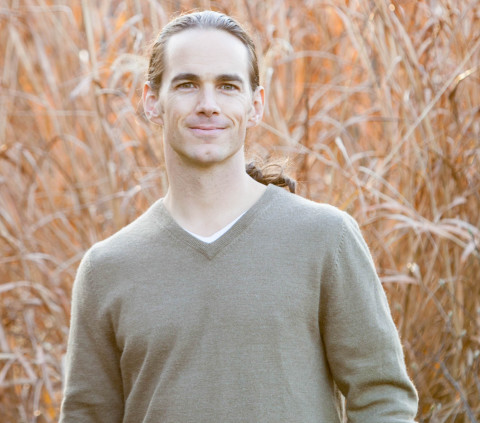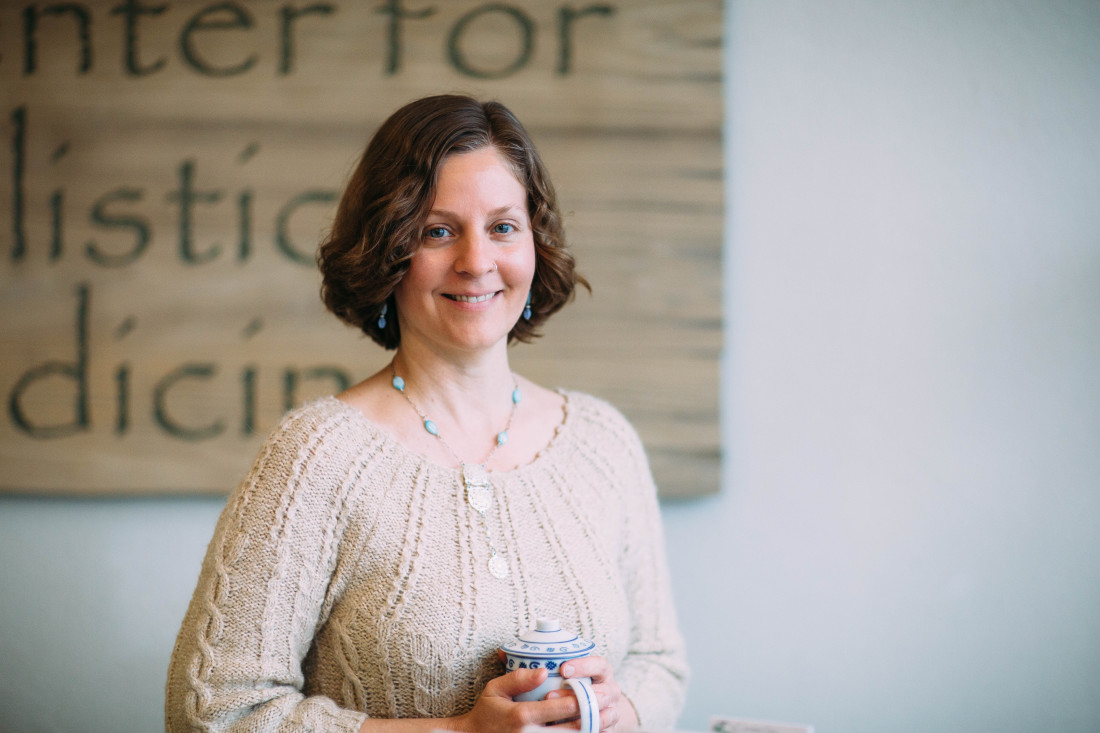Brian Lewis’ quest for a different kind of medicine began in medical school, where he received a grant to study healing methodologies from the Himalayas and Tibet. He later co-founded a student group on integrative medicine. Lewis, a physician at Integrative Family Medicine of Asheville, says he came to realize that “without treating the whole person, you [can] not do good primary care.”
He explains, “Integrative medicine in contrast to conventional Western medicine has a wider scope of modalities to choose from and also a wider perspective from which to diagnose and relate to clients. Basically, it is trying to coordinate more natural methods to effect healing without harm.”
This sentiment is echoed by other Asheville integrative and holistic practitioners. Danna Park, Mission Hospital’s former medical director for integrative care, describes integrative medicine as an evidence-based, healing-oriented medicine that takes account of the whole person — body, mind and spirit — including all aspects of lifestyle. “Integrative medicine gives us more tools in our toolbox,” she says.
Park now works as an integrative medicine consultant to local medical professionals and their clients. She also teaches periodically at the UNC Chapel Hill School of Medicine and at the University of Arizona integrative medicine program.
“Conventional medicine tends to look at the body as a set of biochemical processes or organs with specific functions and will then break that down,” Park says. For example, conventional practitioners look at a problem as it relates to an organ in the body, she explains. “Then to treat it, they will usually use a medication or a biochemical therapy. Integrative medicine goes beyond this. We will use biologically based therapies also, in addition to medications, but then we also have a whole variety of others things we can include.”
In her practice, therapies might include guided imagery, nutrition, lifestyle changes, exercise prescriptions, osteopathic manipulation, hypnosis and biologic therapies such as herbs, vitamins and other supplements. “It is not just about the body but also the mind and the spirit, because all of that is connected,” Park says.
Nancy Hyton concurs on the connection of the mind, body and spirit. “In holistic and Chinese medicine you have a spirit and life force; there is no equivalent for that in conventional medicine,” says Hyton, a licensed acupuncturist, Chinese herbalist and owner of Center for Holistic Medicine in West Asheville. “These are two different manifestations of the same thing. Yes, you are your body, and yes, you are your spirit, but they are different facets of the same individual. One is material, and one is immaterial and there are gradations in between.”
The Asheville- and Mill Springs-based CooperRiis Healing Community is applying these concepts to help people with serious mental health challenges. “Our model is a holistic model,” says Mary Kreider, the integrative health director and a certified integrative health coach. “We look at the whole person and don’t pathologize an illness. There is a recognition that there are many healing traditions, not just a doctor and a pharmaceutical cure.”
Kreider adds that there is a big difference between conventional psychiatry and the way CooperRiis provides care. “We’re looking at health optimization compared to [conventional psychiatry’s] managing a disease. Conventional psychiatric and general health medicine is physician-directed,” she says — a doctor determines the diagnosis and treatment. “An integrative approach is more of a partnership, a collaboration with the individual, and there is a team approach of professionals from multiple healing modalities.”
Integrative medicine is a young field. Originally it was called “alternative medicine,” Lewis says. That term was replaced with “complementary and alternative medicine” because it worked well in conjunction with conventional Western medicine. Now the agreed-upon term is “integrative medicine,” says Lewis says. “Integrative means we integrate many different systems/approaches, holistic means the whole person.”

In practice, patients usually use both integrative and traditional Western medicine. Most people who receive acupuncture from Hyton have a conventional medical doctor as well, she says. In fact, some doctors refer to her and she refers patients to doctors as well. “It goes both ways,” she says.
“One thing I see a lot here [at the center] is that people come to us because they’ve exhausted their conventional medical options or they’ve reached a plateau,” says Hyton. “For example, they’ve had chronic back pain and had three cortisone shots; they have had an epidural; and their next option is surgery. … They want to try something that is not as extreme first. So they come to me; that happens all the time,” she says.
“Conventional Western medicine is very good at treating trauma, acute conditions, things with direct linear progression,” says Lewis. “But for chronic illness, things that develop over a long period of time and with a lot of different influences, including family belief structures, lifestyle and stress, Western medicine is not as good. More than 75 percent of every health care dollar is spent on conditions that are completely preventable and reversible — $3 trillion a year,” he says, referring to documented health care costs of heart disease, stroke, diabetes, cancer and obesity.
Scientific evidence is growing to support the integrative approach. “There is some great research by Dean Ornish,” Lewis says. Over time, using hard science, Ornish “has found that by focusing on these four areas — nutrition, physical fitness, healthy relationships and stress management — they’ve been able to reverse heart disease, diabetes and even early forms of cancer. These are things five to 10 years ago people thought were kind of crazy,” Lewis says.
With integrative medicine, “You really have to look at treating [people] in the context of their whole lives, their society, their culture. And when we do that, we realize that medicine is practiced in the room with patients, and also in the community and on the national level. All of these things are impacting people’s health,” says Lewis.
“I feel grateful that with Ornish’s work we have the hard evidence that shows it is the small choices we make every day that have the greatest impact on our health. And when we can help patients realize that they light up; they feel empowered and inspired.”
MORE INFO:
Brian Lewis, integrativeasheville.org or 575-9600;
Danna Park, mountainintegrative.com or 333-3339
Nancy Hyton, centerholistic.com or 505-3174
Mary Kreider, cooperriis.org or 894-5557



Before you comment
The comments section is here to provide a platform for civil dialogue on the issues we face together as a local community. Xpress is committed to offering this platform for all voices, but when the tone of the discussion gets nasty or strays off topic, we believe many people choose not to participate. Xpress editors are determined to moderate comments to ensure a constructive interchange is maintained. All comments judged not to be in keeping with the spirit of civil discourse will be removed and repeat violators will be banned. See here for our terms of service. Thank you for being part of this effort to promote respectful discussion.